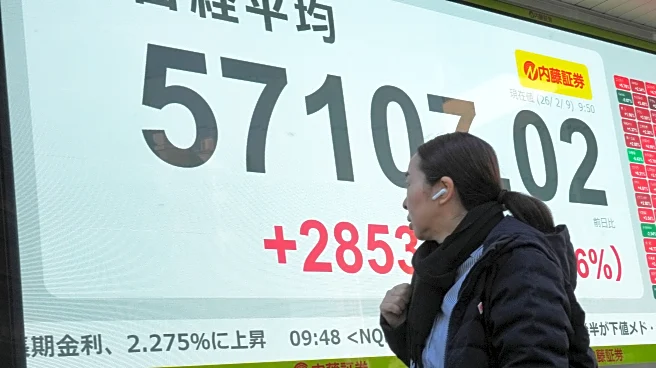What's Happening?
ChAI, an AI analytics platform, has developed a tool that predicts commodity prices with high accuracy, allowing smaller businesses to insure against price volatility. This development comes as commodity prices have become increasingly unpredictable, affecting companies worldwide. Larger corporations like Nestlé and Mondelēz International typically use hedging to secure supply and mitigate price fluctuations, but smaller businesses often find hedging complex and resource-intensive. ChAI's AI tool provides an alternative by offering insurance based on its accurate predictions, covering both manmade materials like recycled PET and agricultural commodities.
Why It's Important?
The ability to predict and insure against commodity price volatility is crucial for smaller businesses that lack the resources to engage in traditional hedging. This innovation by ChAI could level the playing field, allowing these companies to manage financial risks more effectively. As commodity prices are influenced by factors such as climate change and geopolitical events, the need for reliable prediction tools is more pressing than ever. By providing insurance options, ChAI's tool could facilitate a shift towards more sustainable materials, as businesses can better manage the financial risks associated with such transitions.
What's Next?
ChAI's AI tool is expected to continue evolving, with ongoing improvements in machine learning techniques tailored to commodities and insurance products. As the tool becomes more accurate, it may expand its coverage to include a wider range of commodities and materials. This could lead to increased adoption by smaller businesses seeking to protect themselves from price volatility. Additionally, the tool's success may prompt other companies to develop similar AI-driven solutions, potentially transforming how businesses approach commodity price risk management.
Beyond the Headlines
The introduction of AI-driven insurance for commodities could have broader implications for the industry, potentially influencing regulatory frameworks and financial markets. As AI tools become more integrated into business operations, ethical considerations regarding data privacy and algorithmic transparency may arise. Furthermore, the shift towards insurable commodities could encourage more companies to adopt sustainable practices, aligning business strategies with environmental goals.












